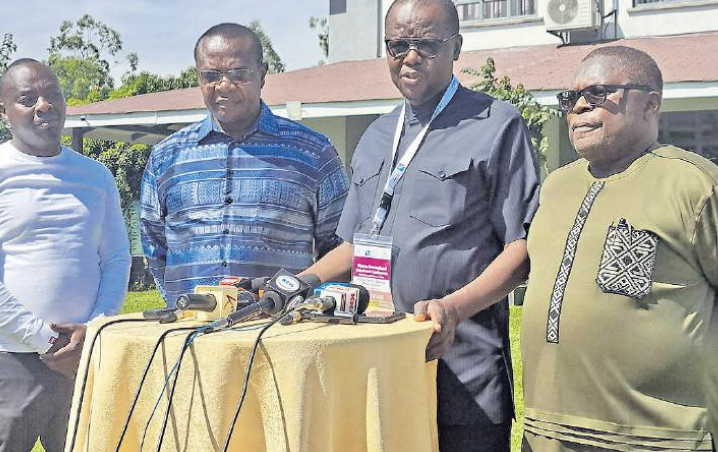
Governors from western Kenya have expressed support for President William Ruto’s directive to scrap vetting for ID registration in Northeastern.
They called for the directive to be extended beyond Northeastern to include other frontier counties.
Last week, Ruto signed a Presidential Proclamation to officially abolish stringent vetting of residents seeking citizenship documents in Northeastern, terming it the process unjust and discriminatory.
The Western governors highlighted the significance of the directive in helping restore accurate population numbers in the regions and enabling residents who have long struggled to acquire IDs due to strict vetting.
The governors who supported Ruto in a side briefing during the Nyanza International Investment Conference included Ochilo Ayacko (Migori), Kenneth Lusaka (Bungoma) and Paul Otuoma (Busia).
“It is unfortunate that many elderly individuals, who have lived in this country all their lives, have been unable to acquire national IDs due to the vetting process. This issue is about reclaiming our rightful population,” Otuoma said.
The governors emphasised that this matter transcended political concerns and should be recognised as a human right.
“Being identified, counted, and recognised as belonging to a specific place is a fundamental right of every Kenyan. Without an ID, one is rendered invisible, without a nation and without rights,” Ayacko said.
In counties like Migori, with a population of over 1.3 million, only about 390,000 people are registered as voters.
Similar disparities exist in other regions, where many individuals have been excluded from the registration process due to the vetting requirements.
“We have young people getting married and struggling to acquire their IDs because local authorities demand that they provide their parents’ documentation, which is often not feasible,” Ayacko said.
These barriers have left many people, particularly from marginalised communities, without the necessary documentation to fully engage in civic and national affairs.
The governors also stressed that the issue is not just about political participation but about accessing various opportunities tied to proper documentation.
“Without an ID, people cannot access government services, health benefits, or even participate in the labor market,” Lusaka said.
Otuoma spoke of the plight of people living in border counties, noting that they have suffered for years without enjoying their rights, especially in terms of identification.
“If you don’t have an ID card, you face significant challenges in life; you won’t be recognised by the government, and you won’t be able to access basic services.”
He further pointed out the vast disparities in voter registration statistics. Many have been denied their citizenship and right to be recognised as Kenyans.
“We believe this directive is long overdue, and we are calling for action to address this injustice,” Otuoma said.
The governors urged the national government to expedite the process of identifying and registering citizens in frontier counties.
They called on the relevant government departments to deploy officers to those areas to ensure all eligible citizens are properly captured in the national database.
Additionally, the leaders advocated for sensitisation campaigns, especially in rural and remote areas, to educate citizens about the importance of registering for an ID.
“This is not just about voting rights; it’s about restoring the dignity and rights of our people,” Lusaka said.









